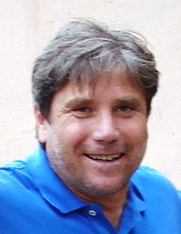Dr. Yasushi Kambayashi
Professor, Department of Informatics and Data Science, Sanyo-Onoda City University
Keynote Speech:
Multi-Agent Base Evacuation Support System Using MANET
Short Abstract: We propose an evacuation support system that provides evacuation routes in case of disasters. When communication base stations break down due to disasters such as an earthquake, it becomes difficult for people to use their smartphones based on the Internet. When the communication infrastructure is paralyzed, people have great difficulty collecting information about the conditions of transportation systems and the states of family and friends using smartphones. Our proposed system addresses this problem by using multiple kinds of mobile agents in addition to static agents on smartphones that use a mobile ad hoc network (MANET). The proposed system collects information with mobile agents and diffuses information via mobile agents so that the system is able to provide an optimized evacuation route for each user in a dynamically changing environment. For example, when a tsunami or a flood tide occurs, low elevations may be under water. Therefore, the evacuation support system must help people to move to safer places by selecting higher elevation routes when warranted by the situation. This smartphone-based system may work in urban area, but may not work in sparsely populated areas, such as mountainous regions, evacuees may not have access to information to the situation due to the paralyzed communication infrastructure. In order to address this problem, we are now proposing another evacuation support system after disasters using Unmanned Aerial Vehicles (UAVs). We have two types of UAVs for this system. One type of UAVs surveys the road conditions and collects information about affected individuals, while another type of UAVs guides the evacuees based on the collected information by the former UAVs. We are developing a simulator for the feasibility study of this system.

Short CV: Dr. Yasushi Kambayashi is a Professor at the Department of Informatics and Data Science from Sanyo-Onoda City University. He worked at Nippon Institute of Technology as an associate professor and Mitsubishi Research Institute as a staff researcher before joining the university. His research interests include theory of computation, sensor networks, and political science. He received his PhD in Engineering from the University of Toledo, his MS in Computer Science from the University of Washington, and his BA in Law from Keio University. He has been conducting several government-granted projects on multi-agent and multi-robot systems. He is currently engaging evacuation support systems based on multi-agents and cooperative multiple UAVs. He has published seven books (co-authored), and thirteen journal papers on these topics. He worked for the Japan Information-Technology Engineers Examination as a committee member. He is a Fellow of IARIA, a committee member of INSTICC. He is a member of ACM, IEEE Computer Society, Tau Beta Pi, IPSJ, JSSST, IEICE System Society, and Japan Flutist Association.
Dr. Filippo Sciarrone
Associate Professor, Universitas Mercatorum – Department of Science and Technology, Rome, Italy
Keynote Speech:
Generative AI and Education: a winning combination?
Short Abstract: One of the key strengths of Large Language Models (LLMs) and generative AI is their ability to understand human language with remarkable depth and nuance. This enables them to reason logically, plan effectively, and carry out complex tasks. As a result, there’s growing confidence that, in the age of AI, anyone can learn to program—simply by using natural language. For educators, this means new opportunities to collaborate with Generative AI in developing lesson plans and educational materials. By learning how to design and deploy AI agents, teachers can personalize instruction based on diverse student needs, guided by established learning theories and adaptive teaching strategies. My talk addresses the relationship between generative AI and education. In particular, I will show the state of the art regarding the application of conversational agents, or intelligent chatbots, as learning aids for students, including students with learning disabilities. Intelligent chatbots, based on Generative AI, can act as extensions of the human teacher, transcending physical boundaries to provide continuous, accessible learning experiences. In this presentation, I explore the conceptual foundations and design principles behind pedagogical AI agents. I will also give live demonstrations showing how these agents can operate, showing web-based systems acting for dyslexic students.

Short CV: Filippo Sciarrone obtained a Ph.D. on the use of personalisation techniques and methods in the field of learning, with a focus on the application of artificial intelligence to education. Currently, Filippo Sciarrone is an Associate Professor at Universitas Mercatorum in Rome, Italy, where he is teaching several courses in computer science. His research interests mainly concern Technology Enhanced Learning, and in particular the application of Generative Artificial Intelligence techniques and methods to the educational field. He has led several research laboratories of companies for the production of algorithms and innovative systems for human resource management and for teaching-oriented recommendation systems. Currently he manages a research group on the use of generative AI to the construction of intelligent conversational agents for students with Specific Learning Disorders. He is the author of more than two hundred publications in the field of artificial intelligence applied to education.